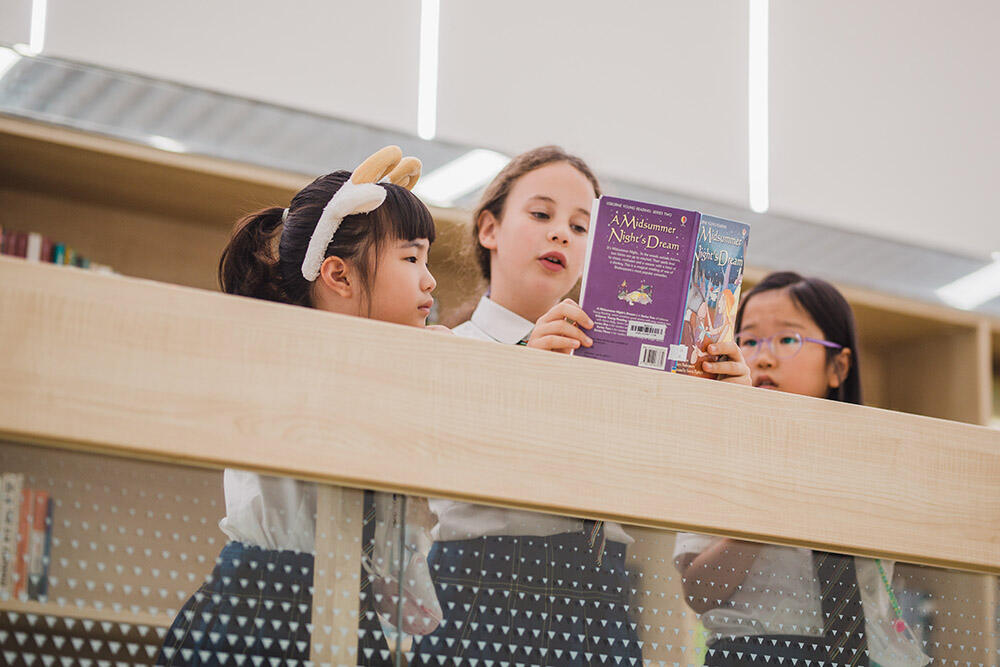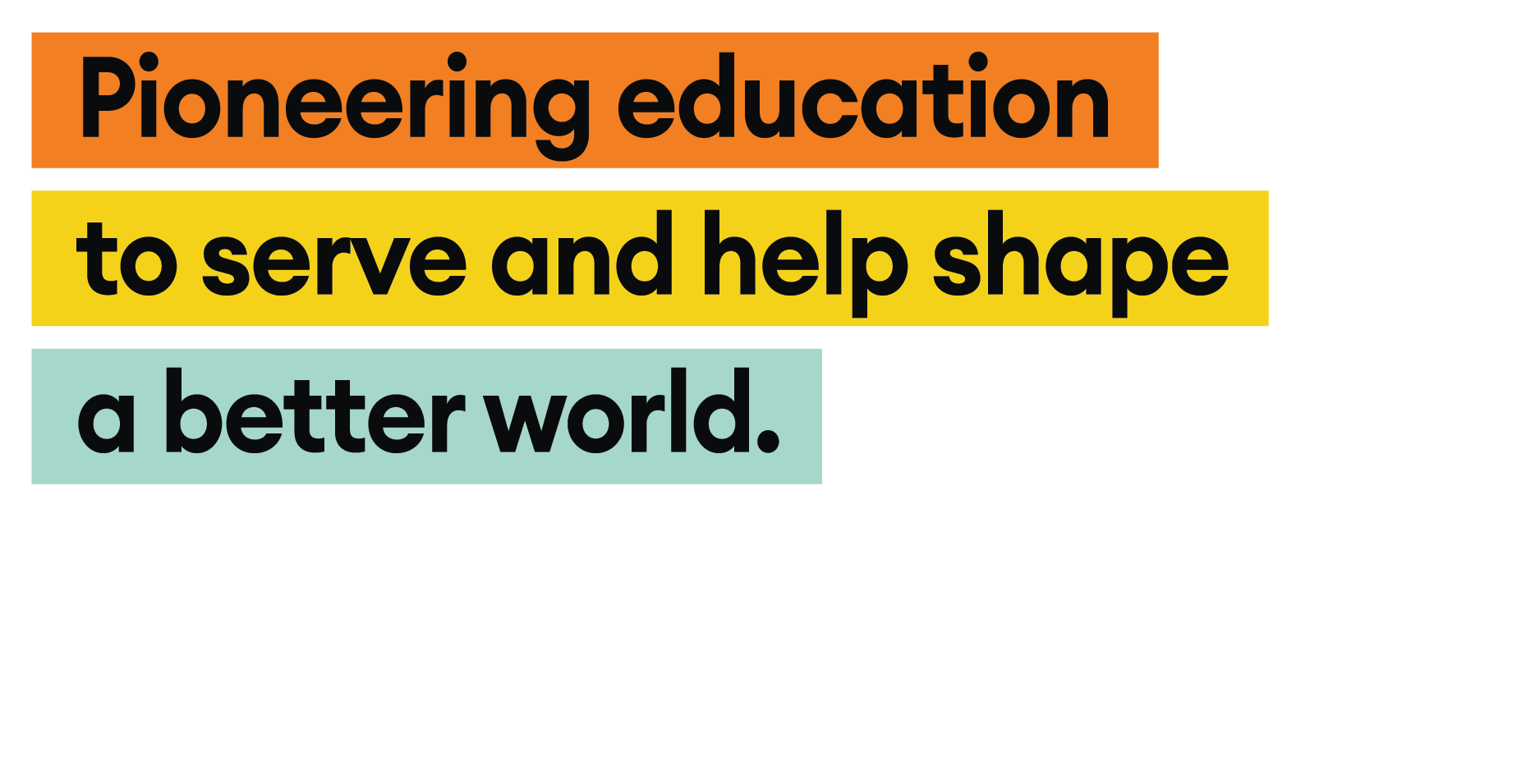Insight丨Developing Independence During Distance Learning
25 May 2020
In this Educational Insights Series, experts from across the Wellington College group give advice, practical help and tips for parents who are keen to give further support for their children's learning. In this article from the series, Megan Huckfield from Wellington College Tianjin discusses the developing independence during distance learning.
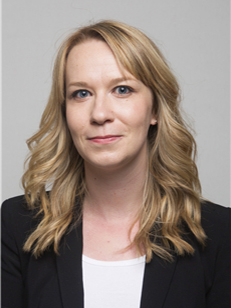
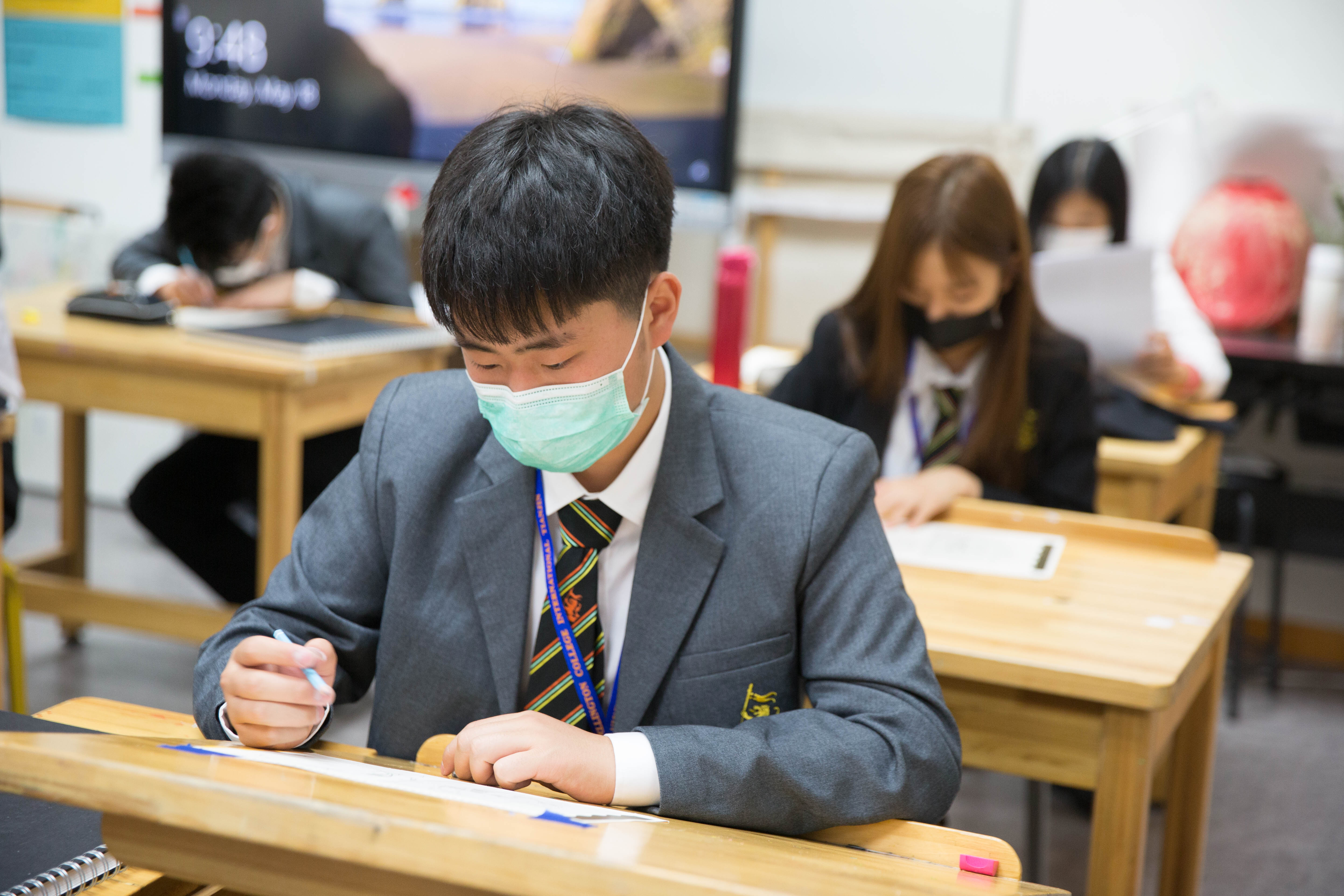 The best guidance available to teachers on metacognition is the work of U.K. based educational charity, the Education Endowment Foundation (EEF). Their research into the effectiveness of teaching and learning methods rates metacognition and self-regulation in the classroom as very high impact based on extensive evidence. In their 2018 report the EEF explains that:
On a very basic level, it’s about pupils’ ability to monitor, direct, and review their learning. Effective metacognitive strategies get learners to think about their own learning more explicitly, usually by teaching them to set goals, and monitor and evaluate their own academic progress.[i]
At the end of April 2020 in response to a worldwide shift to online learning, the EEF produced a report outlining the best evidence on supporting students to learn remotely.[ii] The report recognises that the skills of independence are even more vital during remote learning in order to support pupil outcomes, in particular the report highlights the value of adopting metacognitive strategies to support independence such as ‘prompting pupils to reflect on their work or to consider the strategies they will use if they get stuck.’[iii]
[i] Quigley, A., Muijis, D. and Stringer, E. (2018). Sutton Trust - Education Endowment Foundation, Metacognition and Self-Regulated Learning Guidance Report, retrieved from: https://educationendowmentfoundation.org.uk/evidence-summaries/teaching-learning-toolkit/meta-cognition-and-self-regulation/
[ii] Sutton Trust-Education Endowment Fund (2020), Best evidence on supporting students to learn remotely. Retrieved from: https://educationendowmentfoundation.org.uk/covid-19-resources/best-evidence-on-supporting-students-to-learn-remotely/
[iii] Sutton Trust-Education Endowment Fund (2020). Rapid evidence assessment: distance learning, key findings summary. Retrieved from: https://educationendowmentfoundation.org.uk/public/files/Publications/Covid-19_Resources/Remote_learning_evidence_review/Rapid_Evidence_Assessment_summary.pdf
How did the Humanities department use lessons from research into metacognition and self-regulation to support your child?
Our IGCSE and A level examination year groups have been using Personal Learning Checklists (PLCs) to monitor and assess their understanding of key topics. Pupils use these self-assessment checklists to monitor how confident they are in their understanding of a topic. They use their self-assessment to plan targeted revision strategies, with guidance from their teachers, that will help them to close any gaps in their knowledge and understanding. Year 11, 12 and 13 History groups have been completing their PLCs online using Microsoft Forms this term. This allows me, as their teacher, to see not only individual gaps in knowledge but also patterns across classes in areas of weakness. In turn, this ensures teachers can target, with greater precision, any areas of need in follow-up video conference lessons with pupils.
The best guidance available to teachers on metacognition is the work of U.K. based educational charity, the Education Endowment Foundation (EEF). Their research into the effectiveness of teaching and learning methods rates metacognition and self-regulation in the classroom as very high impact based on extensive evidence. In their 2018 report the EEF explains that:
On a very basic level, it’s about pupils’ ability to monitor, direct, and review their learning. Effective metacognitive strategies get learners to think about their own learning more explicitly, usually by teaching them to set goals, and monitor and evaluate their own academic progress.[i]
At the end of April 2020 in response to a worldwide shift to online learning, the EEF produced a report outlining the best evidence on supporting students to learn remotely.[ii] The report recognises that the skills of independence are even more vital during remote learning in order to support pupil outcomes, in particular the report highlights the value of adopting metacognitive strategies to support independence such as ‘prompting pupils to reflect on their work or to consider the strategies they will use if they get stuck.’[iii]
[i] Quigley, A., Muijis, D. and Stringer, E. (2018). Sutton Trust - Education Endowment Foundation, Metacognition and Self-Regulated Learning Guidance Report, retrieved from: https://educationendowmentfoundation.org.uk/evidence-summaries/teaching-learning-toolkit/meta-cognition-and-self-regulation/
[ii] Sutton Trust-Education Endowment Fund (2020), Best evidence on supporting students to learn remotely. Retrieved from: https://educationendowmentfoundation.org.uk/covid-19-resources/best-evidence-on-supporting-students-to-learn-remotely/
[iii] Sutton Trust-Education Endowment Fund (2020). Rapid evidence assessment: distance learning, key findings summary. Retrieved from: https://educationendowmentfoundation.org.uk/public/files/Publications/Covid-19_Resources/Remote_learning_evidence_review/Rapid_Evidence_Assessment_summary.pdf
How did the Humanities department use lessons from research into metacognition and self-regulation to support your child?
Our IGCSE and A level examination year groups have been using Personal Learning Checklists (PLCs) to monitor and assess their understanding of key topics. Pupils use these self-assessment checklists to monitor how confident they are in their understanding of a topic. They use their self-assessment to plan targeted revision strategies, with guidance from their teachers, that will help them to close any gaps in their knowledge and understanding. Year 11, 12 and 13 History groups have been completing their PLCs online using Microsoft Forms this term. This allows me, as their teacher, to see not only individual gaps in knowledge but also patterns across classes in areas of weakness. In turn, this ensures teachers can target, with greater precision, any areas of need in follow-up video conference lessons with pupils.
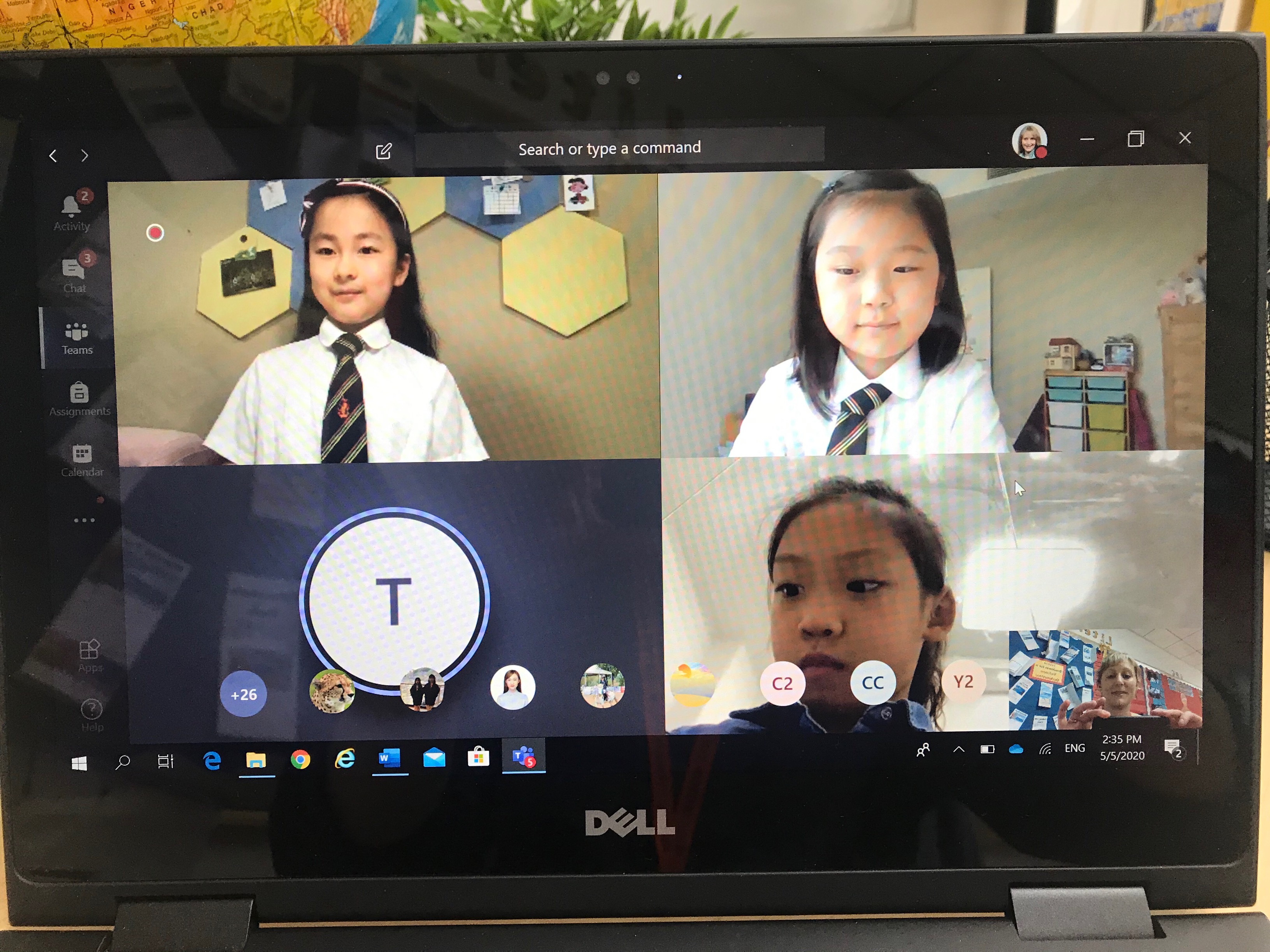 One key aspect of developing the skills of metacognition and self-regulation is explicitly modelling to pupils the thinking behind key processes. Do you remember what it was like to be a novice, learning something new for the first time? As subject experts, we often forget the deep layers of knowledge we have acquired over the years, meaning that when we approach our subject, the hours of hard work and time developing and refining our understanding as an expert historian or geographer are not always apparent to an onlooker. It is important that, as teachers, we think carefully about the processes and skills that now come ‘naturally’ to us, so that we can model those steps for our pupils to show them how to think and act like a historian or a geographer too. To move from novice to expert, our pupils need to know how experts think and act. As such we need to make these largely implicit processes we follow instinctively as experts explicit to our novice learners.
One key aspect of developing the skills of metacognition and self-regulation is explicitly modelling to pupils the thinking behind key processes. Do you remember what it was like to be a novice, learning something new for the first time? As subject experts, we often forget the deep layers of knowledge we have acquired over the years, meaning that when we approach our subject, the hours of hard work and time developing and refining our understanding as an expert historian or geographer are not always apparent to an onlooker. It is important that, as teachers, we think carefully about the processes and skills that now come ‘naturally’ to us, so that we can model those steps for our pupils to show them how to think and act like a historian or a geographer too. To move from novice to expert, our pupils need to know how experts think and act. As such we need to make these largely implicit processes we follow instinctively as experts explicit to our novice learners.
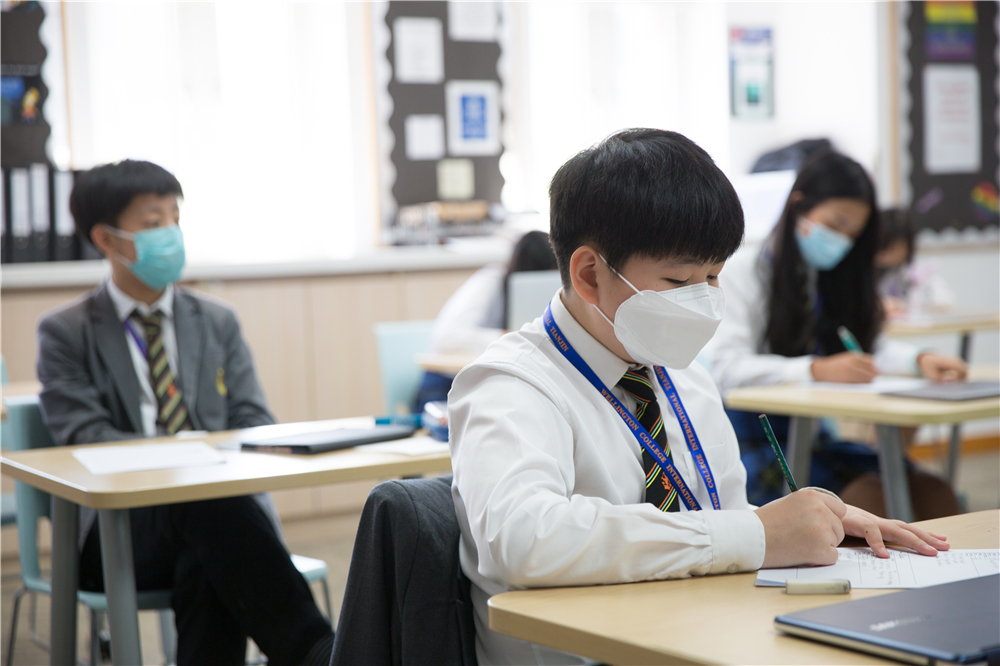 Therefore, the third recommendation for teachers in the EEF report suggests that teachers clearly model their own thinking to help pupils develop metacognitive and cognitive skills. In order to do this, teachers in the Humanities department have been using the screen share function during our video conference meetings on Teams to live model ‘perfect’ paragraphs and to show pupils what exactly they should be looking for when approaching a source or evidence.
Therefore, the third recommendation for teachers in the EEF report suggests that teachers clearly model their own thinking to help pupils develop metacognitive and cognitive skills. In order to do this, teachers in the Humanities department have been using the screen share function during our video conference meetings on Teams to live model ‘perfect’ paragraphs and to show pupils what exactly they should be looking for when approaching a source or evidence.
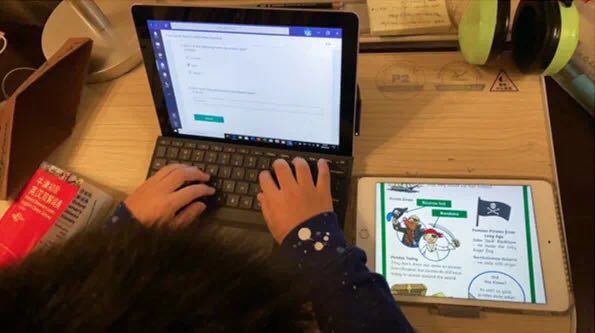 For example, in a Year 9 History lesson Mr Hazell recently looked at sources on plantation life in North America and the Caribbean as a part of our topic on the transatlantic slave trade. He modelled through the tricky processes of analysing both the content and the provenance (the information we are given about the source’s author and date of production) to work out how reliable and useful a range of sources are to help us learn about this time period. By modelling these processes and thinking aloud, pupils can see the way in which they should approach the sources critically, enhancing their own attempts at analysis during independent practise.
For example, in a Year 9 History lesson Mr Hazell recently looked at sources on plantation life in North America and the Caribbean as a part of our topic on the transatlantic slave trade. He modelled through the tricky processes of analysing both the content and the provenance (the information we are given about the source’s author and date of production) to work out how reliable and useful a range of sources are to help us learn about this time period. By modelling these processes and thinking aloud, pupils can see the way in which they should approach the sources critically, enhancing their own attempts at analysis during independent practise.
 In addition, we have been making use of screencasts, these are short videos that talk through an aspect of the learning. Our Year 11 IGCSE History pupils received a series of videos featuring a question-by-question walkthrough following their mock examinations in January. These screencast videos showed them how each question on the examination should be approached by dissecting and analysing top grade exemplar answers. Pupils can use these walkthrough videos to inform their reflections on their own mock examination answers and to help them set clear targets to improve. They can also use the walkthrough videos to help them when approaching the same type of question in the future. During these modelled activities, teachers have been consciously thinking aloud and explaining why certain words, phrases and extracts from sources, for example, have been applied to exemplar answers.
In addition, we have been making use of screencasts, these are short videos that talk through an aspect of the learning. Our Year 11 IGCSE History pupils received a series of videos featuring a question-by-question walkthrough following their mock examinations in January. These screencast videos showed them how each question on the examination should be approached by dissecting and analysing top grade exemplar answers. Pupils can use these walkthrough videos to inform their reflections on their own mock examination answers and to help them set clear targets to improve. They can also use the walkthrough videos to help them when approaching the same type of question in the future. During these modelled activities, teachers have been consciously thinking aloud and explaining why certain words, phrases and extracts from sources, for example, have been applied to exemplar answers.
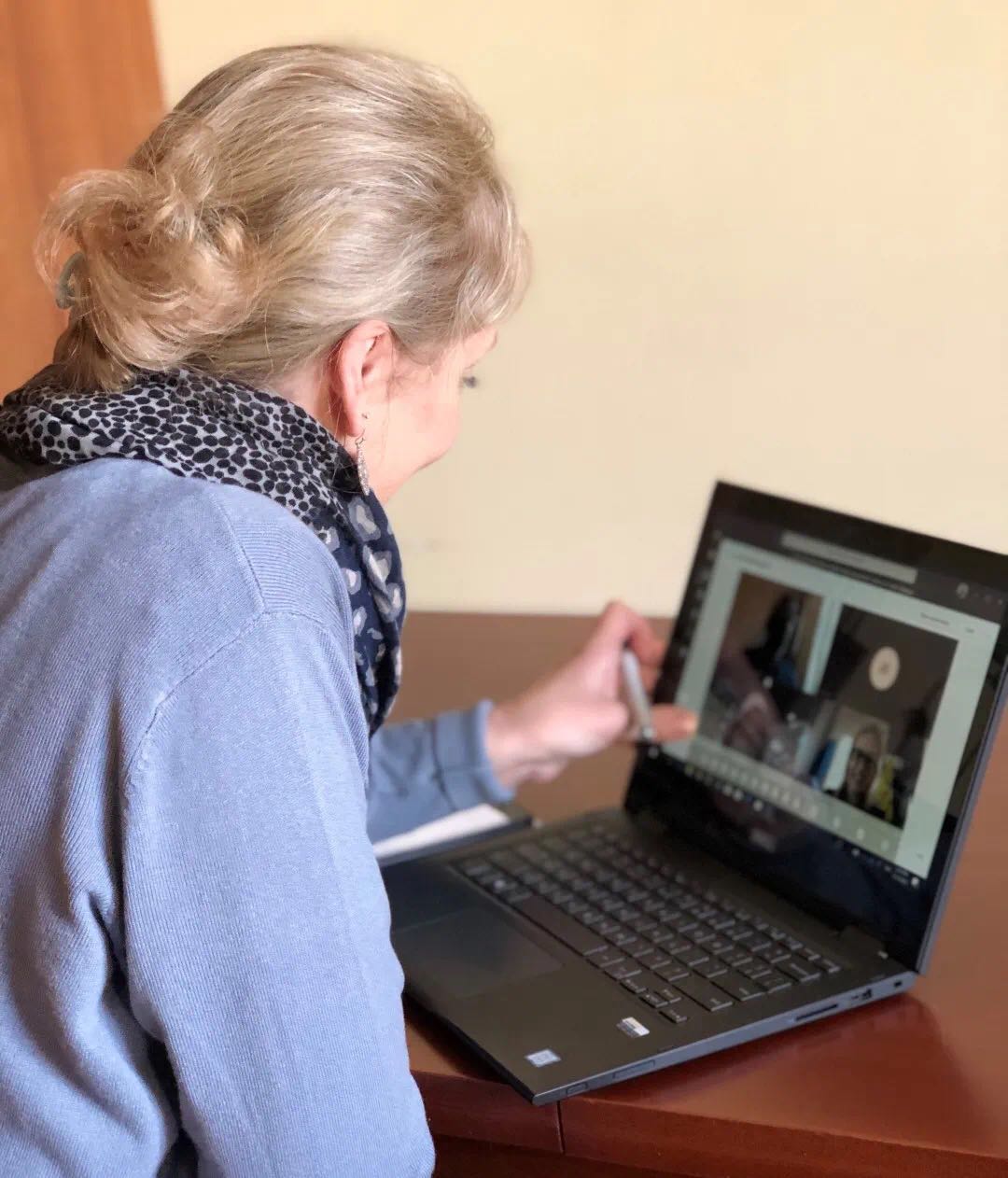
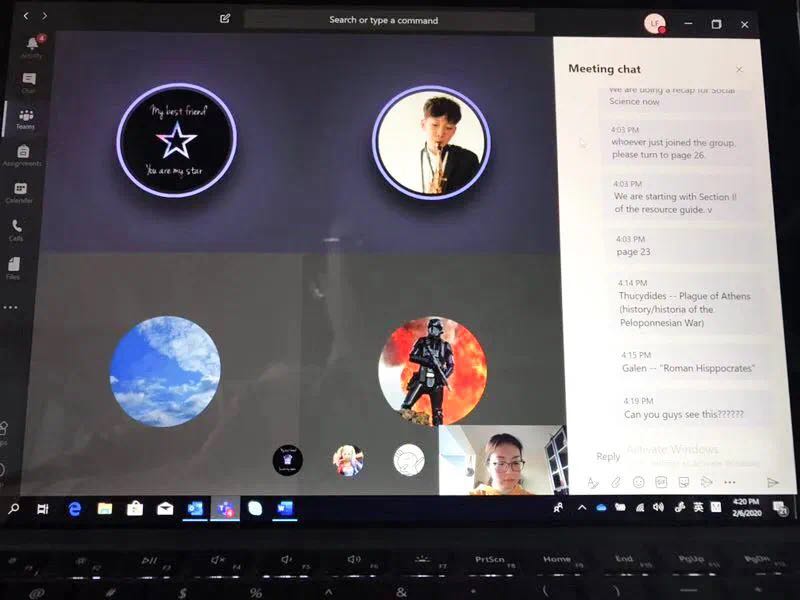 How can you use lessons from research into metacognition and self-regulation to support your child at home?
Recommendation 6 from the EEF’s guidance report is to explicitly teach pupils how to organise, and effectively manage, their learning independently. Effective learners will use several strategies to help them learn well independently.
Consider the following scenario:
James knew that to work properly he would need to manage his distractions, especially his mobile phone and his video games console. With a little help from his mother, James made his bedroom more like a study space than a video games room during the times he would be working. James also handed over his mobile phone to his mother during the time he was working as he knew that messages from his friends would distract him from the online classes.
After classes, James started on his homework. Using his planner to check what work had been set during the day he’d check what lessons he had coming up tomorrow and get out any equipment or resources he needed before steeling himself to do some hard work. He writes a short list of each task he must do, so he can tick them once he has completed them. James expects his usual lull in concentration after forty-five minutes, so he grabs a drink and a snack before getting back to his homework. At the end of his study time, James goes to his list and ticks the tasks he has completed.[iv]
[iv] This imaginary scenario is adapted from a similar example presented in the Education Endowment Foundation report with some details changed to match issues we know pupils and parents have faced during e-learning time. Op. cit, Quigley, A., Muijis, D. and Stringer, E. (2018).
Zimmerman’s (2002) research into the attributes of self-regulated learners can be observed in the scenario above[v]:
Restructuring one’s physical and social context to make it compatible with one’s goals. James recognises that there are distractions and obstacles to his learning (his mobile phone, the video game environment of his bedroom) and he takes steps, with the support of a parent, to change his environment in order to make working independently easier. James has the maturity to recognise this. Many of our younger pupils will not yet have developed this level of self-awareness. Therefore, it is useful for parents to set limits on the use of mobile phones and other distractions during learning time, and certainly during live lesson time.
How can you use lessons from research into metacognition and self-regulation to support your child at home?
Recommendation 6 from the EEF’s guidance report is to explicitly teach pupils how to organise, and effectively manage, their learning independently. Effective learners will use several strategies to help them learn well independently.
Consider the following scenario:
James knew that to work properly he would need to manage his distractions, especially his mobile phone and his video games console. With a little help from his mother, James made his bedroom more like a study space than a video games room during the times he would be working. James also handed over his mobile phone to his mother during the time he was working as he knew that messages from his friends would distract him from the online classes.
After classes, James started on his homework. Using his planner to check what work had been set during the day he’d check what lessons he had coming up tomorrow and get out any equipment or resources he needed before steeling himself to do some hard work. He writes a short list of each task he must do, so he can tick them once he has completed them. James expects his usual lull in concentration after forty-five minutes, so he grabs a drink and a snack before getting back to his homework. At the end of his study time, James goes to his list and ticks the tasks he has completed.[iv]
[iv] This imaginary scenario is adapted from a similar example presented in the Education Endowment Foundation report with some details changed to match issues we know pupils and parents have faced during e-learning time. Op. cit, Quigley, A., Muijis, D. and Stringer, E. (2018).
Zimmerman’s (2002) research into the attributes of self-regulated learners can be observed in the scenario above[v]:
Restructuring one’s physical and social context to make it compatible with one’s goals. James recognises that there are distractions and obstacles to his learning (his mobile phone, the video game environment of his bedroom) and he takes steps, with the support of a parent, to change his environment in order to make working independently easier. James has the maturity to recognise this. Many of our younger pupils will not yet have developed this level of self-awareness. Therefore, it is useful for parents to set limits on the use of mobile phones and other distractions during learning time, and certainly during live lesson time.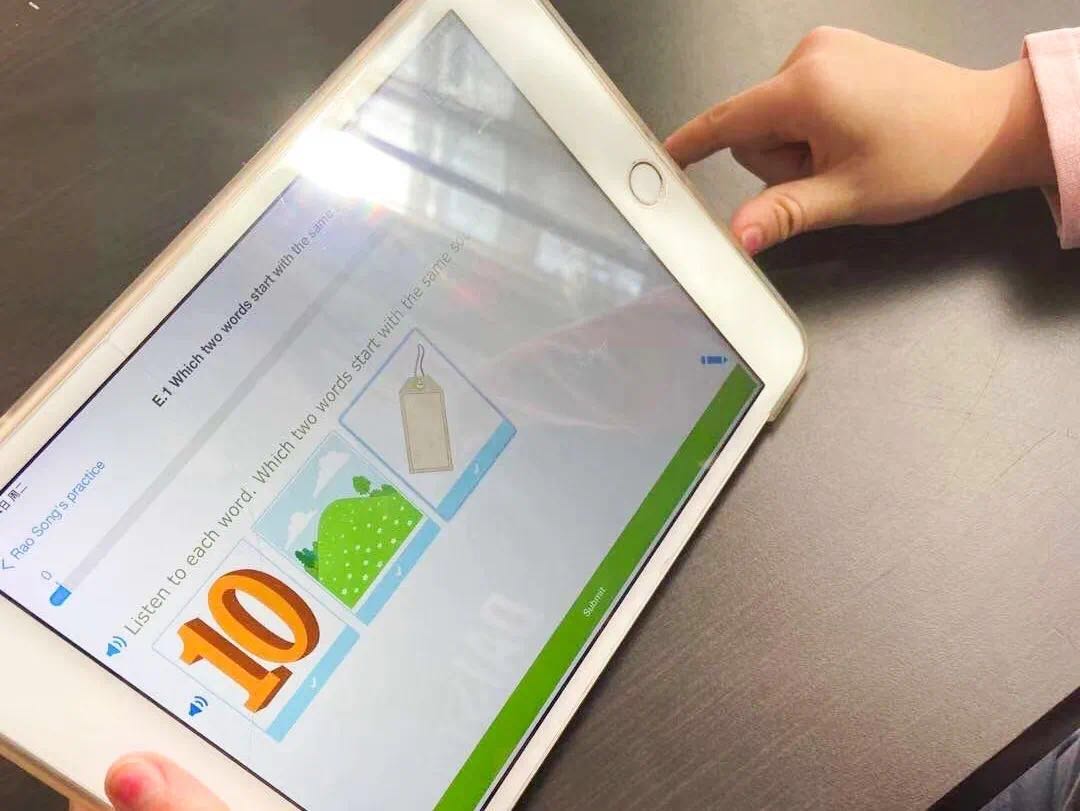 Managing time-use efficiently. James also recognises he will have a lull in concentration. This is very normal and so ensures he provides himself with a planned and structured break that will give him some space to reorganise his thoughts and return to his work more productively. Both adults and children are very good at procrastinating but allowing short breaks can help to keep focus.
Setting specific short-term goals. James uses his planner to check work he has been set and sets himself goals using a list. He also returns to the list checking off what he has completed.
Managing time-use efficiently. James also recognises he will have a lull in concentration. This is very normal and so ensures he provides himself with a planned and structured break that will give him some space to reorganise his thoughts and return to his work more productively. Both adults and children are very good at procrastinating but allowing short breaks can help to keep focus.
Setting specific short-term goals. James uses his planner to check work he has been set and sets himself goals using a list. He also returns to the list checking off what he has completed.
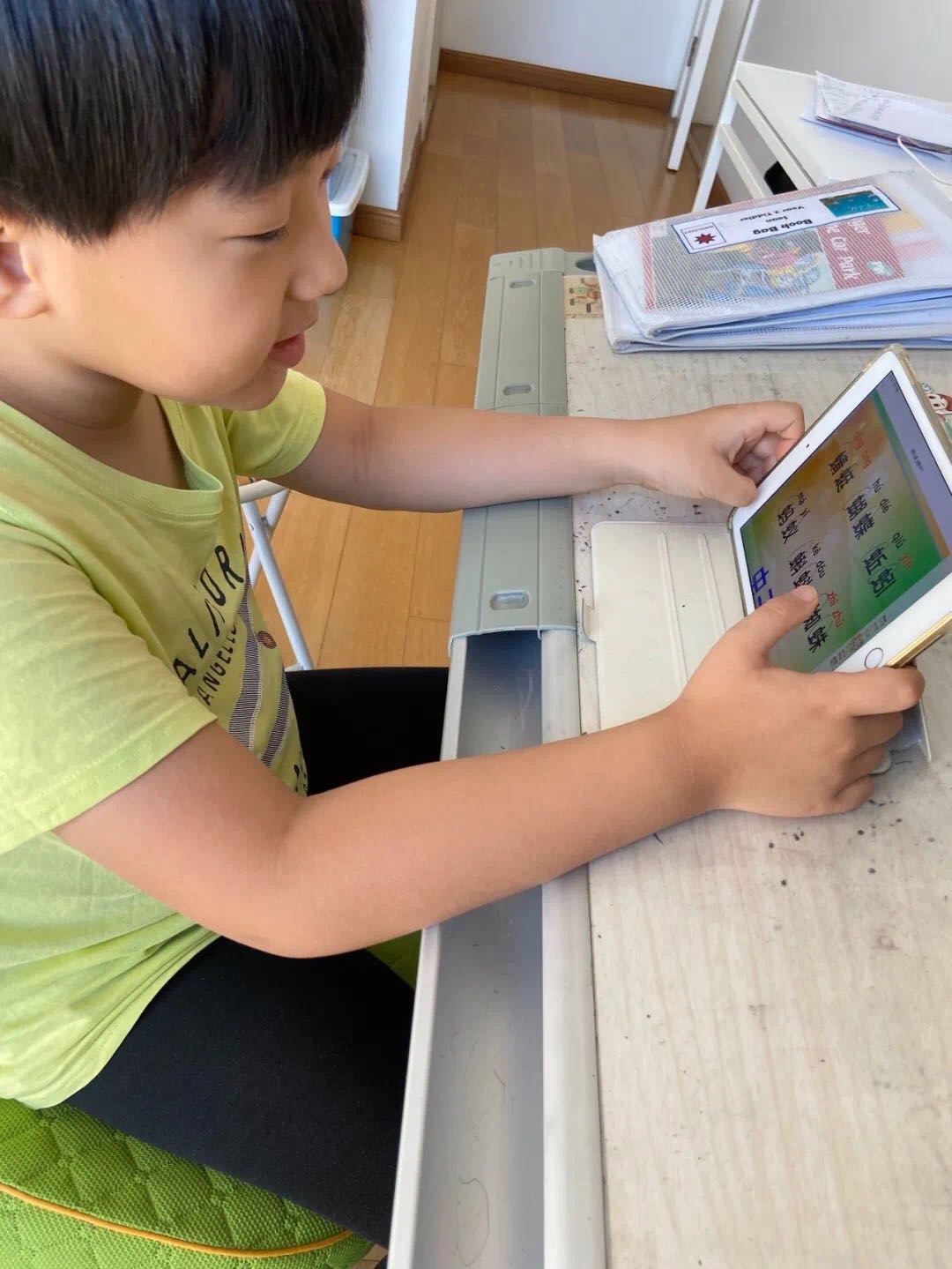
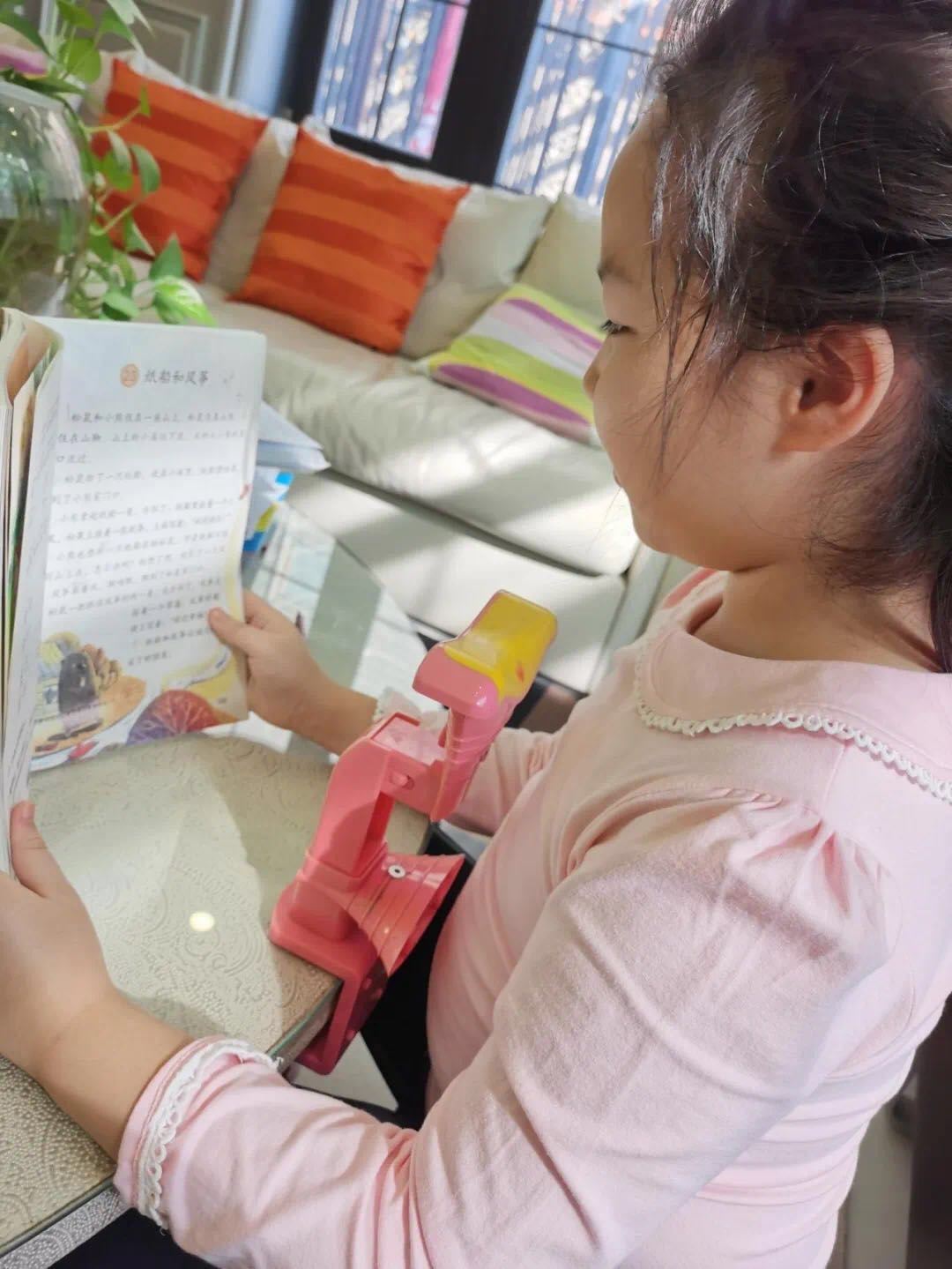
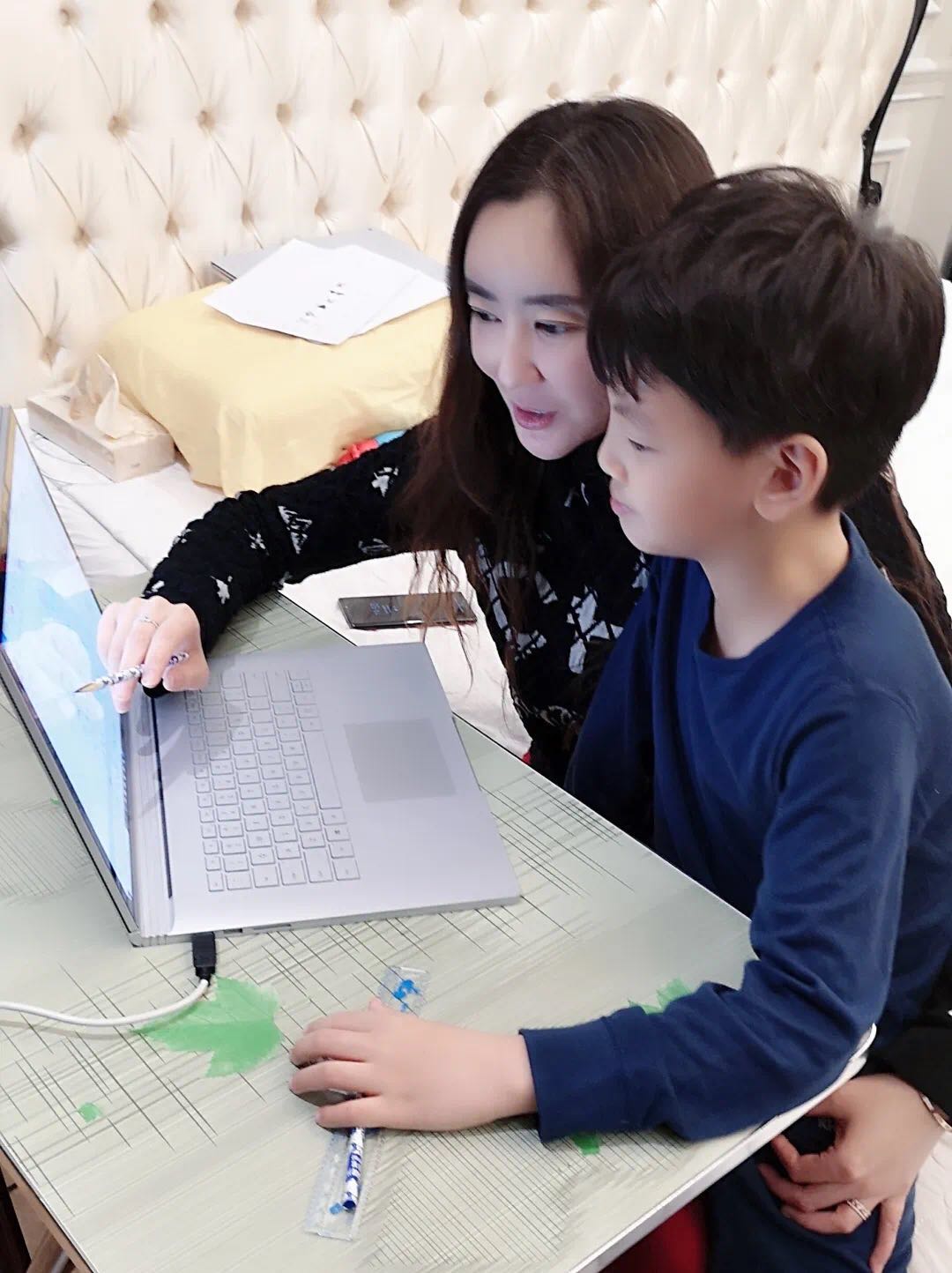
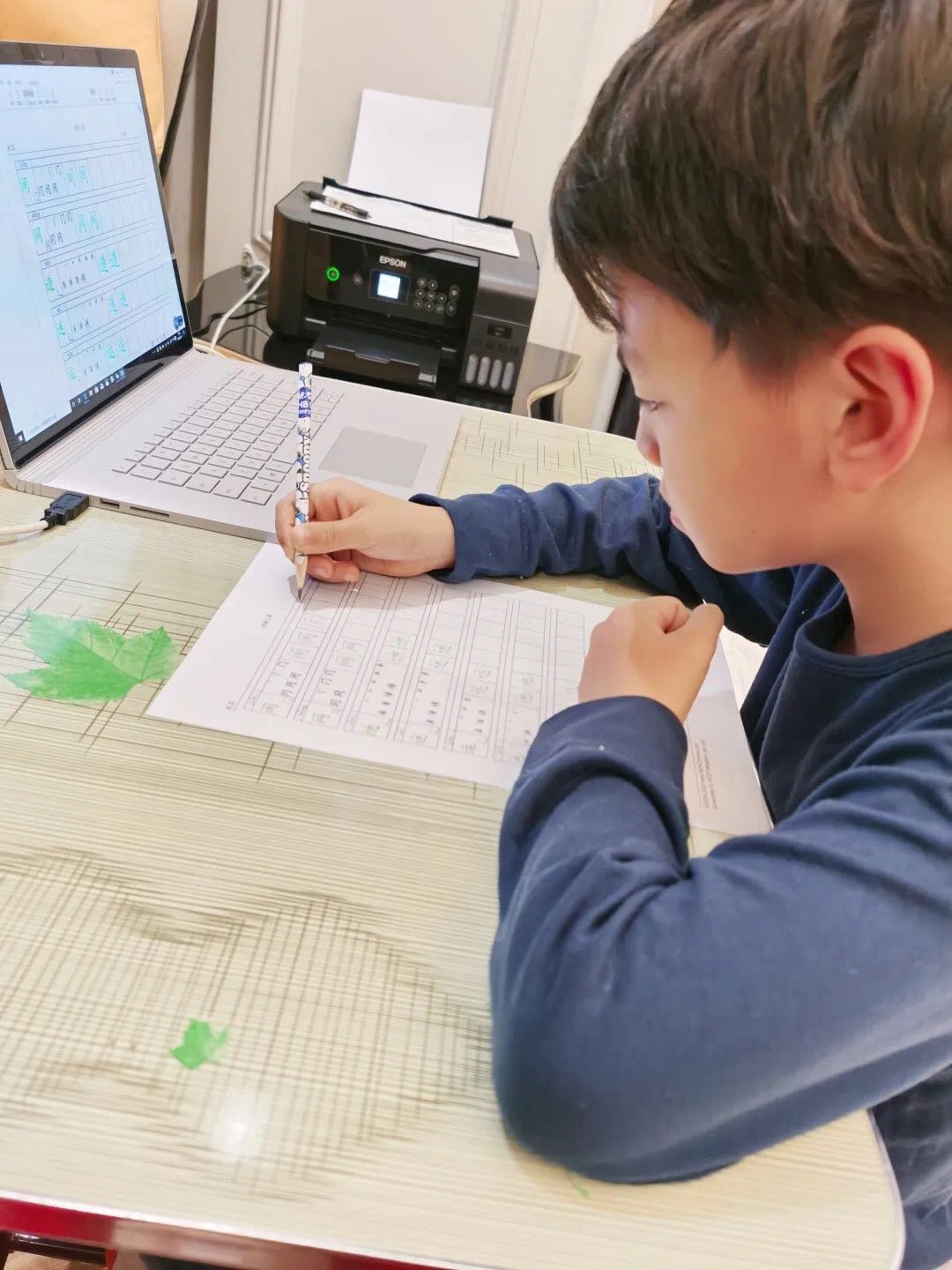 You can also ask your child some simple questions at the end of their day to generate a discussion about their learning and encourage them to reflect on the strategies they used to learn effectively during remote learning.
[v] Zimmerman, Barry J. (2002). ‘Becoming a Self-Regulated Learner: An Overview.’ Theory Into Practice 41 (2)
You can also ask your child some simple questions at the end of their day to generate a discussion about their learning and encourage them to reflect on the strategies they used to learn effectively during remote learning.
[v] Zimmerman, Barry J. (2002). ‘Becoming a Self-Regulated Learner: An Overview.’ Theory Into Practice 41 (2)
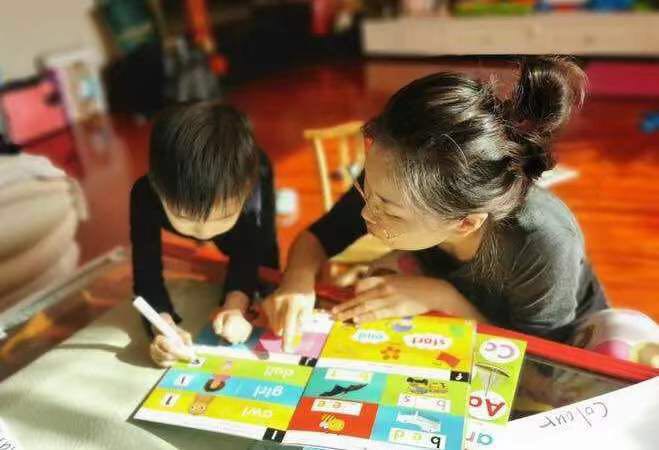 Metacognitive questions parents could ask their child about their learning strategies:
▷▷▷
Metacognitive questions parents could ask their child about their learning strategies:
▷▷▷
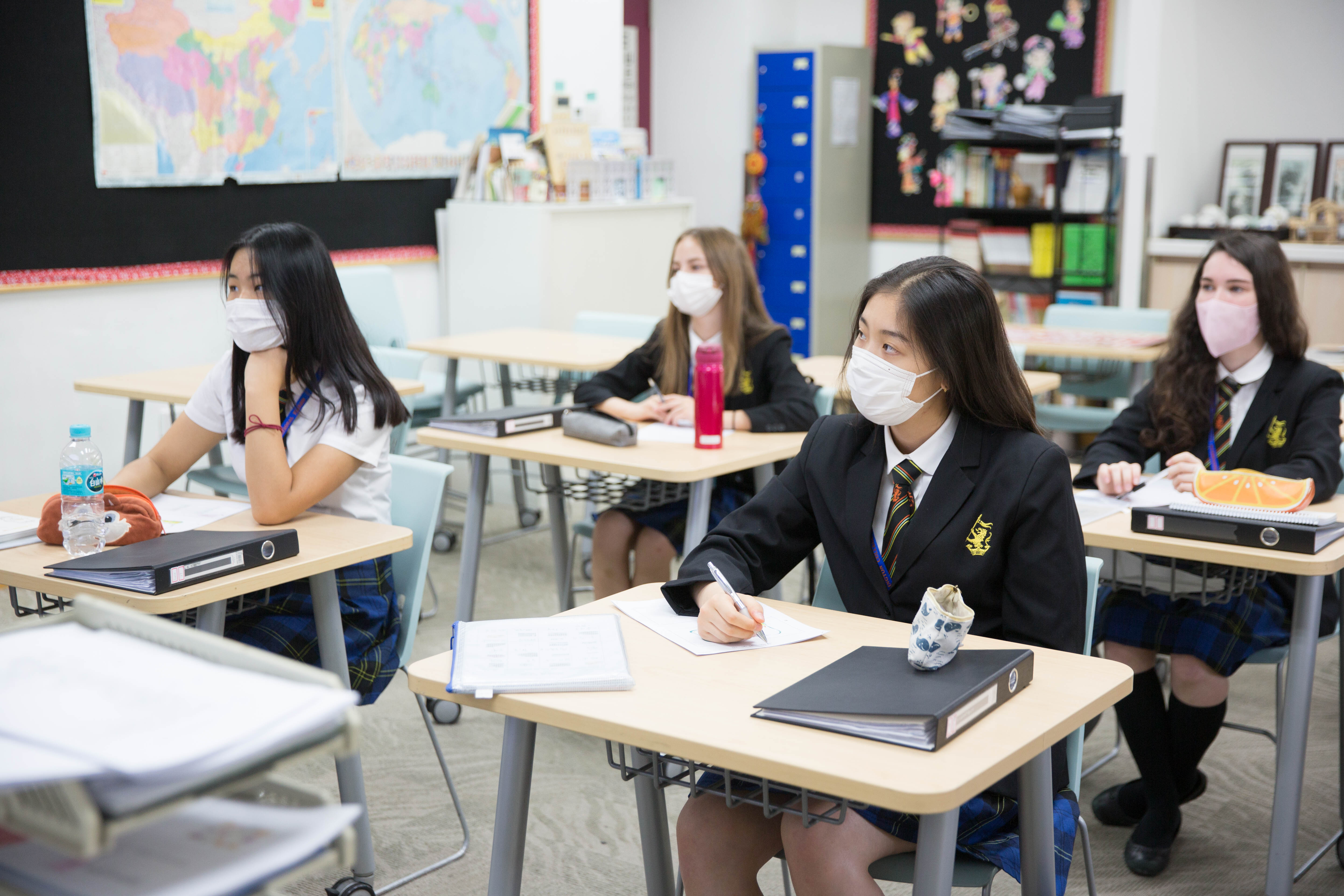 A shift to learning remotely has been a transformative time for all our pupils, parents and teachers. Our community has risen to the challenge of this new style of teaching and learning and in the Humanities department, it has been fantastic to see our pupils continue to take vast strides in developing independence in their learning, a skill that will truly enable them to succeed as life-long learners.
A shift to learning remotely has been a transformative time for all our pupils, parents and teachers. Our community has risen to the challenge of this new style of teaching and learning and in the Humanities department, it has been fantastic to see our pupils continue to take vast strides in developing independence in their learning, a skill that will truly enable them to succeed as life-long learners.

From the Head of Humanities
Megan Huckfield
Since February, schools around the world have been plunged into the deep and unknown waters of online teaching and learning. Much like the European explorers of the early modern period our Year 8 History classes had just finished studying, teachers and pupils began to navigate the new and uncharted territory of e-learning. From the start of the academic year, the Humanities department has been undertaking action research into the impact of metacognition in empowering our pupils to develop the skills of independence. Developing independence is no easy feat; the range of skills required to become a truly independent learner are those which are continually being refined as pupils progress through their educational journey at Wellington. With a sudden move to e-learning, supporting our pupils on their journey to independence has never been more important. What is metacognition and self-regulation? Metacognition and self-regulation approaches take research from educational psychology to help pupils think more explicitly about their own learning and thinking. A key aspect of this is teaching pupils specific strategies they can use for planning, monitoring and evaluating their own learning. There are 3 fundamental components of self-regulated learning:- Cognition– the mental process involved in knowing, understanding and learning
- Metacognition– often defined as learning how to learn
- Motivation– willingness to engage the skills of metacognition and cognition
 The best guidance available to teachers on metacognition is the work of U.K. based educational charity, the Education Endowment Foundation (EEF). Their research into the effectiveness of teaching and learning methods rates metacognition and self-regulation in the classroom as very high impact based on extensive evidence. In their 2018 report the EEF explains that:
On a very basic level, it’s about pupils’ ability to monitor, direct, and review their learning. Effective metacognitive strategies get learners to think about their own learning more explicitly, usually by teaching them to set goals, and monitor and evaluate their own academic progress.[i]
At the end of April 2020 in response to a worldwide shift to online learning, the EEF produced a report outlining the best evidence on supporting students to learn remotely.[ii] The report recognises that the skills of independence are even more vital during remote learning in order to support pupil outcomes, in particular the report highlights the value of adopting metacognitive strategies to support independence such as ‘prompting pupils to reflect on their work or to consider the strategies they will use if they get stuck.’[iii]
[i] Quigley, A., Muijis, D. and Stringer, E. (2018). Sutton Trust - Education Endowment Foundation, Metacognition and Self-Regulated Learning Guidance Report, retrieved from: https://educationendowmentfoundation.org.uk/evidence-summaries/teaching-learning-toolkit/meta-cognition-and-self-regulation/
[ii] Sutton Trust-Education Endowment Fund (2020), Best evidence on supporting students to learn remotely. Retrieved from: https://educationendowmentfoundation.org.uk/covid-19-resources/best-evidence-on-supporting-students-to-learn-remotely/
[iii] Sutton Trust-Education Endowment Fund (2020). Rapid evidence assessment: distance learning, key findings summary. Retrieved from: https://educationendowmentfoundation.org.uk/public/files/Publications/Covid-19_Resources/Remote_learning_evidence_review/Rapid_Evidence_Assessment_summary.pdf
How did the Humanities department use lessons from research into metacognition and self-regulation to support your child?
Our IGCSE and A level examination year groups have been using Personal Learning Checklists (PLCs) to monitor and assess their understanding of key topics. Pupils use these self-assessment checklists to monitor how confident they are in their understanding of a topic. They use their self-assessment to plan targeted revision strategies, with guidance from their teachers, that will help them to close any gaps in their knowledge and understanding. Year 11, 12 and 13 History groups have been completing their PLCs online using Microsoft Forms this term. This allows me, as their teacher, to see not only individual gaps in knowledge but also patterns across classes in areas of weakness. In turn, this ensures teachers can target, with greater precision, any areas of need in follow-up video conference lessons with pupils.
The best guidance available to teachers on metacognition is the work of U.K. based educational charity, the Education Endowment Foundation (EEF). Their research into the effectiveness of teaching and learning methods rates metacognition and self-regulation in the classroom as very high impact based on extensive evidence. In their 2018 report the EEF explains that:
On a very basic level, it’s about pupils’ ability to monitor, direct, and review their learning. Effective metacognitive strategies get learners to think about their own learning more explicitly, usually by teaching them to set goals, and monitor and evaluate their own academic progress.[i]
At the end of April 2020 in response to a worldwide shift to online learning, the EEF produced a report outlining the best evidence on supporting students to learn remotely.[ii] The report recognises that the skills of independence are even more vital during remote learning in order to support pupil outcomes, in particular the report highlights the value of adopting metacognitive strategies to support independence such as ‘prompting pupils to reflect on their work or to consider the strategies they will use if they get stuck.’[iii]
[i] Quigley, A., Muijis, D. and Stringer, E. (2018). Sutton Trust - Education Endowment Foundation, Metacognition and Self-Regulated Learning Guidance Report, retrieved from: https://educationendowmentfoundation.org.uk/evidence-summaries/teaching-learning-toolkit/meta-cognition-and-self-regulation/
[ii] Sutton Trust-Education Endowment Fund (2020), Best evidence on supporting students to learn remotely. Retrieved from: https://educationendowmentfoundation.org.uk/covid-19-resources/best-evidence-on-supporting-students-to-learn-remotely/
[iii] Sutton Trust-Education Endowment Fund (2020). Rapid evidence assessment: distance learning, key findings summary. Retrieved from: https://educationendowmentfoundation.org.uk/public/files/Publications/Covid-19_Resources/Remote_learning_evidence_review/Rapid_Evidence_Assessment_summary.pdf
How did the Humanities department use lessons from research into metacognition and self-regulation to support your child?
Our IGCSE and A level examination year groups have been using Personal Learning Checklists (PLCs) to monitor and assess their understanding of key topics. Pupils use these self-assessment checklists to monitor how confident they are in their understanding of a topic. They use their self-assessment to plan targeted revision strategies, with guidance from their teachers, that will help them to close any gaps in their knowledge and understanding. Year 11, 12 and 13 History groups have been completing their PLCs online using Microsoft Forms this term. This allows me, as their teacher, to see not only individual gaps in knowledge but also patterns across classes in areas of weakness. In turn, this ensures teachers can target, with greater precision, any areas of need in follow-up video conference lessons with pupils.
 One key aspect of developing the skills of metacognition and self-regulation is explicitly modelling to pupils the thinking behind key processes. Do you remember what it was like to be a novice, learning something new for the first time? As subject experts, we often forget the deep layers of knowledge we have acquired over the years, meaning that when we approach our subject, the hours of hard work and time developing and refining our understanding as an expert historian or geographer are not always apparent to an onlooker. It is important that, as teachers, we think carefully about the processes and skills that now come ‘naturally’ to us, so that we can model those steps for our pupils to show them how to think and act like a historian or a geographer too. To move from novice to expert, our pupils need to know how experts think and act. As such we need to make these largely implicit processes we follow instinctively as experts explicit to our novice learners.
One key aspect of developing the skills of metacognition and self-regulation is explicitly modelling to pupils the thinking behind key processes. Do you remember what it was like to be a novice, learning something new for the first time? As subject experts, we often forget the deep layers of knowledge we have acquired over the years, meaning that when we approach our subject, the hours of hard work and time developing and refining our understanding as an expert historian or geographer are not always apparent to an onlooker. It is important that, as teachers, we think carefully about the processes and skills that now come ‘naturally’ to us, so that we can model those steps for our pupils to show them how to think and act like a historian or a geographer too. To move from novice to expert, our pupils need to know how experts think and act. As such we need to make these largely implicit processes we follow instinctively as experts explicit to our novice learners.
 Therefore, the third recommendation for teachers in the EEF report suggests that teachers clearly model their own thinking to help pupils develop metacognitive and cognitive skills. In order to do this, teachers in the Humanities department have been using the screen share function during our video conference meetings on Teams to live model ‘perfect’ paragraphs and to show pupils what exactly they should be looking for when approaching a source or evidence.
Therefore, the third recommendation for teachers in the EEF report suggests that teachers clearly model their own thinking to help pupils develop metacognitive and cognitive skills. In order to do this, teachers in the Humanities department have been using the screen share function during our video conference meetings on Teams to live model ‘perfect’ paragraphs and to show pupils what exactly they should be looking for when approaching a source or evidence.
 For example, in a Year 9 History lesson Mr Hazell recently looked at sources on plantation life in North America and the Caribbean as a part of our topic on the transatlantic slave trade. He modelled through the tricky processes of analysing both the content and the provenance (the information we are given about the source’s author and date of production) to work out how reliable and useful a range of sources are to help us learn about this time period. By modelling these processes and thinking aloud, pupils can see the way in which they should approach the sources critically, enhancing their own attempts at analysis during independent practise.
For example, in a Year 9 History lesson Mr Hazell recently looked at sources on plantation life in North America and the Caribbean as a part of our topic on the transatlantic slave trade. He modelled through the tricky processes of analysing both the content and the provenance (the information we are given about the source’s author and date of production) to work out how reliable and useful a range of sources are to help us learn about this time period. By modelling these processes and thinking aloud, pupils can see the way in which they should approach the sources critically, enhancing their own attempts at analysis during independent practise.
 In addition, we have been making use of screencasts, these are short videos that talk through an aspect of the learning. Our Year 11 IGCSE History pupils received a series of videos featuring a question-by-question walkthrough following their mock examinations in January. These screencast videos showed them how each question on the examination should be approached by dissecting and analysing top grade exemplar answers. Pupils can use these walkthrough videos to inform their reflections on their own mock examination answers and to help them set clear targets to improve. They can also use the walkthrough videos to help them when approaching the same type of question in the future. During these modelled activities, teachers have been consciously thinking aloud and explaining why certain words, phrases and extracts from sources, for example, have been applied to exemplar answers.
In addition, we have been making use of screencasts, these are short videos that talk through an aspect of the learning. Our Year 11 IGCSE History pupils received a series of videos featuring a question-by-question walkthrough following their mock examinations in January. These screencast videos showed them how each question on the examination should be approached by dissecting and analysing top grade exemplar answers. Pupils can use these walkthrough videos to inform their reflections on their own mock examination answers and to help them set clear targets to improve. They can also use the walkthrough videos to help them when approaching the same type of question in the future. During these modelled activities, teachers have been consciously thinking aloud and explaining why certain words, phrases and extracts from sources, for example, have been applied to exemplar answers.

 How can you use lessons from research into metacognition and self-regulation to support your child at home?
Recommendation 6 from the EEF’s guidance report is to explicitly teach pupils how to organise, and effectively manage, their learning independently. Effective learners will use several strategies to help them learn well independently.
Consider the following scenario:
James knew that to work properly he would need to manage his distractions, especially his mobile phone and his video games console. With a little help from his mother, James made his bedroom more like a study space than a video games room during the times he would be working. James also handed over his mobile phone to his mother during the time he was working as he knew that messages from his friends would distract him from the online classes.
After classes, James started on his homework. Using his planner to check what work had been set during the day he’d check what lessons he had coming up tomorrow and get out any equipment or resources he needed before steeling himself to do some hard work. He writes a short list of each task he must do, so he can tick them once he has completed them. James expects his usual lull in concentration after forty-five minutes, so he grabs a drink and a snack before getting back to his homework. At the end of his study time, James goes to his list and ticks the tasks he has completed.[iv]
[iv] This imaginary scenario is adapted from a similar example presented in the Education Endowment Foundation report with some details changed to match issues we know pupils and parents have faced during e-learning time. Op. cit, Quigley, A., Muijis, D. and Stringer, E. (2018).
Zimmerman’s (2002) research into the attributes of self-regulated learners can be observed in the scenario above[v]:
Restructuring one’s physical and social context to make it compatible with one’s goals. James recognises that there are distractions and obstacles to his learning (his mobile phone, the video game environment of his bedroom) and he takes steps, with the support of a parent, to change his environment in order to make working independently easier. James has the maturity to recognise this. Many of our younger pupils will not yet have developed this level of self-awareness. Therefore, it is useful for parents to set limits on the use of mobile phones and other distractions during learning time, and certainly during live lesson time.
How can you use lessons from research into metacognition and self-regulation to support your child at home?
Recommendation 6 from the EEF’s guidance report is to explicitly teach pupils how to organise, and effectively manage, their learning independently. Effective learners will use several strategies to help them learn well independently.
Consider the following scenario:
James knew that to work properly he would need to manage his distractions, especially his mobile phone and his video games console. With a little help from his mother, James made his bedroom more like a study space than a video games room during the times he would be working. James also handed over his mobile phone to his mother during the time he was working as he knew that messages from his friends would distract him from the online classes.
After classes, James started on his homework. Using his planner to check what work had been set during the day he’d check what lessons he had coming up tomorrow and get out any equipment or resources he needed before steeling himself to do some hard work. He writes a short list of each task he must do, so he can tick them once he has completed them. James expects his usual lull in concentration after forty-five minutes, so he grabs a drink and a snack before getting back to his homework. At the end of his study time, James goes to his list and ticks the tasks he has completed.[iv]
[iv] This imaginary scenario is adapted from a similar example presented in the Education Endowment Foundation report with some details changed to match issues we know pupils and parents have faced during e-learning time. Op. cit, Quigley, A., Muijis, D. and Stringer, E. (2018).
Zimmerman’s (2002) research into the attributes of self-regulated learners can be observed in the scenario above[v]:
Restructuring one’s physical and social context to make it compatible with one’s goals. James recognises that there are distractions and obstacles to his learning (his mobile phone, the video game environment of his bedroom) and he takes steps, with the support of a parent, to change his environment in order to make working independently easier. James has the maturity to recognise this. Many of our younger pupils will not yet have developed this level of self-awareness. Therefore, it is useful for parents to set limits on the use of mobile phones and other distractions during learning time, and certainly during live lesson time. Managing time-use efficiently. James also recognises he will have a lull in concentration. This is very normal and so ensures he provides himself with a planned and structured break that will give him some space to reorganise his thoughts and return to his work more productively. Both adults and children are very good at procrastinating but allowing short breaks can help to keep focus.
Setting specific short-term goals. James uses his planner to check work he has been set and sets himself goals using a list. He also returns to the list checking off what he has completed.
Managing time-use efficiently. James also recognises he will have a lull in concentration. This is very normal and so ensures he provides himself with a planned and structured break that will give him some space to reorganise his thoughts and return to his work more productively. Both adults and children are very good at procrastinating but allowing short breaks can help to keep focus.
Setting specific short-term goals. James uses his planner to check work he has been set and sets himself goals using a list. He also returns to the list checking off what he has completed.



 You can also ask your child some simple questions at the end of their day to generate a discussion about their learning and encourage them to reflect on the strategies they used to learn effectively during remote learning.
[v] Zimmerman, Barry J. (2002). ‘Becoming a Self-Regulated Learner: An Overview.’ Theory Into Practice 41 (2)
You can also ask your child some simple questions at the end of their day to generate a discussion about their learning and encourage them to reflect on the strategies they used to learn effectively during remote learning.
[v] Zimmerman, Barry J. (2002). ‘Becoming a Self-Regulated Learner: An Overview.’ Theory Into Practice 41 (2)
 Metacognitive questions parents could ask their child about their learning strategies:
▷▷▷
Metacognitive questions parents could ask their child about their learning strategies:
▷▷▷
- What went well today?
- What success did you have today?
- What helped you to be successful today?
- What specific strategy have you used in your learning today that helped you to succeed?
- What did you find difficult in a lesson today?
- When something was difficult in your lesson, what exactly did you do to help move forward?
- Which learning strategy helped you overcome a difficulty today?
- What did you do when you were stuck?
 A shift to learning remotely has been a transformative time for all our pupils, parents and teachers. Our community has risen to the challenge of this new style of teaching and learning and in the Humanities department, it has been fantastic to see our pupils continue to take vast strides in developing independence in their learning, a skill that will truly enable them to succeed as life-long learners.
A shift to learning remotely has been a transformative time for all our pupils, parents and teachers. Our community has risen to the challenge of this new style of teaching and learning and in the Humanities department, it has been fantastic to see our pupils continue to take vast strides in developing independence in their learning, a skill that will truly enable them to succeed as life-long learners.
Related Articles

Event丨Winter Fair 2025 is Coming Soon14 Nov 2025
As winter draws in, our community comes together in warmth. The annual Wellington "Charity Winter Fair" returns with the enchanting theme of "Winter Wonderland". As one of our most treasured communit
Read More

Event丨Winter Fair 2025 is Coming Soon05 Dec 2025
Next Wednesday, the annual Wellington "Charity Winter Fair" returns with the enchanting theme of "Winter Wonderland". As one of our most treasured community traditions, we warmly invite you to join u
Read More
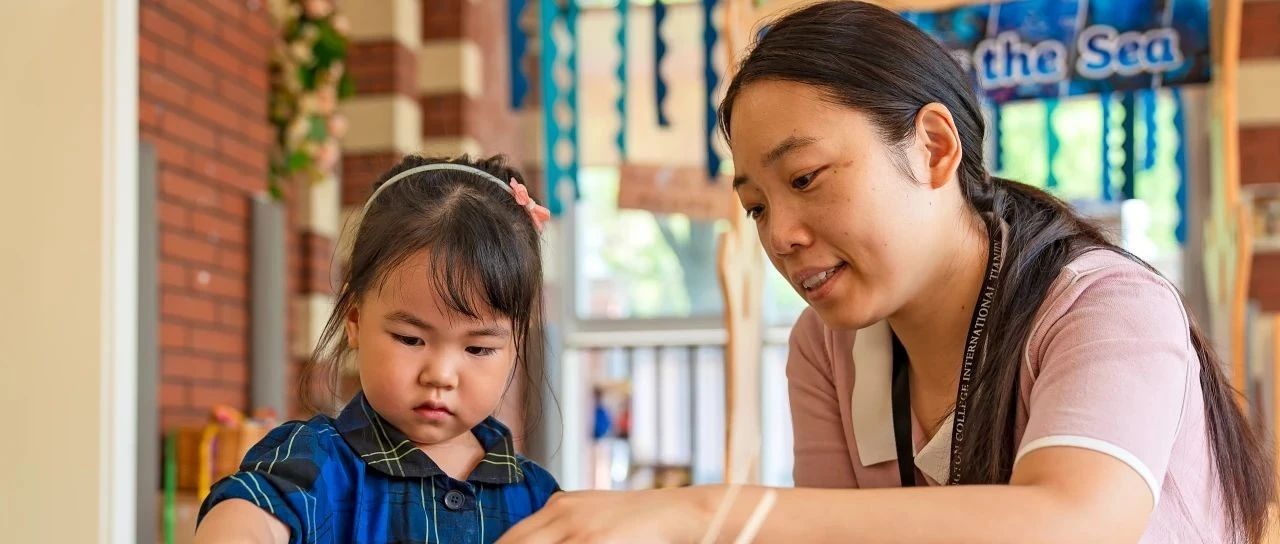
Developing Independence over the Holidays23 Jul 2025
Ms Jordan ZhaoYear 1 Teacher / Safeguarding Support Summer holidays are a wonderful opportunity for children to relax, explore, and grow. However, they also present a perfect chance for parents to nu
Read More






 Channel
Channel 
 Linkedin
Linkedin  Facebook
Facebook  Ins
Ins 

